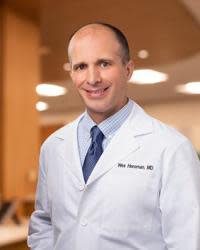The path to recovery from drug addiction, though challenging, is a journey filled with hope and transformation. Dr Michael Vivian sheds light on the various stages of the drug rehabilitation recovery process, providing insight into the steps involved in overcoming addiction.
Understanding Drug Rehabilitation
Drug rehabilitation, often referred to as rehab, is a highly personalized and comprehensive treatment program designed to empower individuals to break free from the clutches of drug addiction. Effective rehab programs encompass physical, mental, emotional, social, and environmental aspects of addiction, equipping patients with the tools needed for lasting recovery.
Assessment and Evaluation
The journey to recovery commences with a thorough assessment and evaluation. During this phase, professionals gather essential information, including the individual’s medical history, drug use patterns, mental health status, family dynamics, and other pertinent factors. This comprehensive evaluation serves as the foundation for crafting a personalized treatment strategy tailored to the individual’s unique needs.
Detoxification
In many instances, the initial step in the rehab process is detoxification. Detox is the process through which the patient’s body is cleansed of the drugs or substances to which they are addicted. While detox can be physically and emotionally challenging, it is typically conducted under the close medical supervision of professionals who ensure the individual’s comfort and safety during withdrawal. For a deeper understanding of the detoxification process, Dr Michael Vivian explores the purpose of detoxification in addiction treatment in a separate blog post.
Therapy and Counseling
Following detoxification, individuals transition into the heart of the rehabilitation process – therapy and counseling. Through a variety of evidence-based therapeutic modalities, patients embark on a journey of self-discovery. They explore the underlying issues that contributed to their addiction, address these challenges, and acquire healthier coping mechanisms. Therapy and counseling play a pivotal role in reshaping thought patterns and behaviors, fostering emotional healing, and building the foundation for lasting recovery.
Aftercare Planning and Support
Post-rehab aftercare planning is a critical component of maintaining sobriety and preventing relapse. A well-structured aftercare plan may encompass ongoing therapy sessions, active participation in support groups, and access to resources designed to assist individuals in reintegrating into society while leading a drug-free life.
Ongoing Recovery
Sustaining a drug-free life requires unwavering commitment to continuous self-improvement and self-awareness. While the intensity of recovery involvement may vary from person to person, it often includes regular attendance at support group meetings, continued participation in therapy sessions, and consistent practice of healthy coping skills. Ongoing recovery is a lifelong journey, marked by growth, resilience, and the promise of a brighter future.
In conclusion, Dr Michael Vivian insights illuminate the transformative journey of drug rehabilitation recovery. With the right support, personalized treatment, and a steadfast commitment to change, individuals battling addiction can embark on a path towards lasting recovery and a renewed sense of purpose. The stages of assessment, detoxification, therapy, aftercare planning, and ongoing recovery all play vital roles in this journey towards a healthier and drug-free life.



